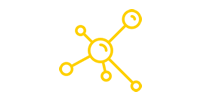LINKPOWER LTD
About us
Linkpower LTD is a company that specializes in delivering petroleum and petroleum chemistry products.
The area served by the company’s deliveries encompasses eastern and western Europe, the Asian-Pacific Region, and the countries of the CIS.
Linkpower also invests into generation of carbon and plastic credits from identification till sale of the credits.
For companies that have recently made or are planning to make emission reduction projects that include reduction in greenhouse gas emissions or plastic waste pollution we help to identify the projects and if our check confirms possibilities in generation of carbon or plastic credits we arrange the project documentation and control the registration process. Upon completion the generated credits are to be sold on the voluntary market to companies that need support to complete their planned commitment on carbon neutrality or just want to support emission and/or plastic waste reduction.
The company is constantly upgrading its work with its clients with the goal of increasing the effectiveness of our joint activities, offering them flexible schemes of financial interaction, individual logistical solutions, and much else.
Climate action and sustainable development
We understand and acknowledge that climate change is a real problem that our world currently faces. Global warming impacts all spheres of life and business and the oil and gas industry is no exception. We realize if we do not act fast, Earth will become inhabitable for the next generations.
In this view as a trading house we seek creative and profitable ways to tackle global climate change. We work alongside financial institutions, private investors, governments, carbon project developers, NGOs and community groups to bring emerging carbon projects to international carbon markets.
Beginning with the accreditation and issuance of carbon credits based on our own oil and gas emission reduction project, we have begun to build a portfolio of emission reduction projects that will bring long-term value to us and our partners enabling scaling up of the climate ambition that we and our partners have.
We are active in carbon project development on both voluntary and compliance markets. By providing project development expertise and access to financing we are helping carbon projects to achieve their climate mitigation goals via issuing and monetising carbon credits. We are active in the EU Fuel Quality Directive UER scheme and have voluntary carbon projects at different stages of realisation in such registries as CERCARBONO and Global Carbon Council with Verra and Gold Standard eligible projects coming in the pipeline as well.
Products
Advantages
 A wide range of products
A wide range of products
The Linkpower LTD Company has a direct contract relationship with the major petroleum chemical manufacturers, which allows it to provide its customers with a full line of products.
 Comprehensive deliveries to enterprises
Comprehensive deliveries to enterprises
We offer comprehensive deliveries of petroleum products and chemicals for various organizations. We provide a high quality of work, stability of deliveries, and a competent staff.
 Stable partner relationships
Stable partner relationships
We are oriented to mutually beneficial, long-term partnership relationships, both with suppliers of products and with customers. This allows us to offer exclusively high-quality products.
News
CONTACTS
Board of Directors
Despina Chrysanthou Dimitriou
supervisor@grandservus.com
(+357) 25 266 500
Natalia Antoniou
natalia@tsirides.com
(+357) 25 266 500
Operational management
Corporate Secretary
A.B.C. Grandeservus Limited
Arch. Makariou III 276, LARA COURT 3105, Limassol, Cyprus
(+357) 25 266 500
Legal Consultants
Costas Tsirides & Co. LLC
tsirides.com
Irina Loutchina Skittides
Arch. Makariou III 276, LARA COURT 3105, Limassol, Cyprus
(+357) 25 266 500
Auditor
YIALLOURIDES & Partners Ltd
www.ayca.com.cy
George Yiallourides
yiallourides@ayca.com.cy
4, SOTIRI TOFINI STREET AUDEH QUARTERS 1ST FLOOR, OFFICES 102&103 AYIOS ATHANASIOS 4102 LIMASSOL, CYPRUS
(+357) 25 443 132